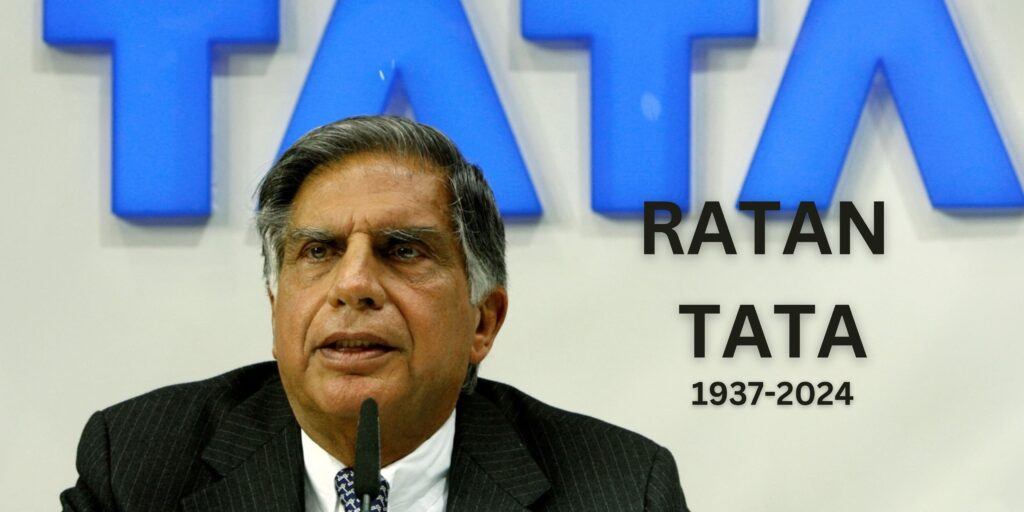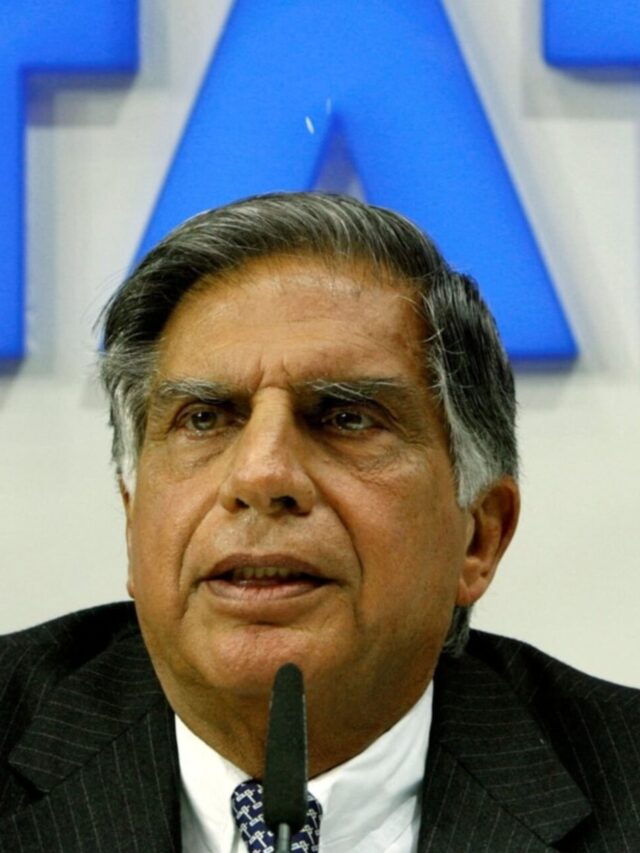Introduction
Ratan Tata is more than just a prominent business leader; he is a visionary who has profoundly influenced India’s industrial and social landscape. Through innovative strategies, a commitment to quality, and a deep sense of social responsibility, Tata has redefined what it means to be a corporate leader. His journey from a young man navigating the challenges of his family’s business to the head of one of the world’s most respected conglomerates is a story of perseverance, vision, and compassion.

Early Life and Education
Born on December 28, 1937, in Mumbai, Ratan Tata comes from a family deeply rooted in the Indian industrial scene. His great-grandfather, Jamsetji Tata, founded the Tata Group in the late 19th century, establishing a legacy that Ratan would one day inherit. After completing his schooling at the Cathedral and John Connon School, Tata pursued higher education at Cornell University, earning a degree in architecture and structural engineering. He later attended the Harvard Business School, where he honed his leadership skills and business acumen.
A Legacy of Leadership
Ratan Tata joined the Tata Group in 1961 and worked in various capacities before becoming the chairman in 1991. His appointment came during a tumultuous period for the company, as it faced challenges in a rapidly changing global market. Tata’s leadership was marked by bold decisions and strategic diversification. He expanded the group’s portfolio beyond its traditional sectors, venturing into telecommunications, software services, and automotive industries.
One of his most notable achievements was the launch of the Tata Nano in 2008, a car designed to be affordable for the masses. The Nano epitomized Tata’s commitment to innovation and accessibility, aiming to provide safe and reliable transportation to millions of Indians. Despite facing challenges in its market reception, the project showcased Tata’s vision of making a difference in the lives of ordinary people.
- You May Also Read !!
India Largest IPO: Hyundai Motors
Social Impact and charity
Beyond business, Ratan Tata is celebrated for his charity. He has consistently emphasized the importance of corporate social responsibility. The Tata Trusts, which control a significant portion of the Tata Group’s wealth, have played a pivotal role in funding initiatives across education, healthcare, and rural development. Under his leadership, the trusts have contributed significantly to various social causes, including the establishment of hospitals, educational institutions, and rural empowerment programs.
Tata’s commitment to social issues extends to advocating for the environment and sustainability. He has pushed for ethical business practices and corporate governance, encouraging other leaders to prioritize social impact alongside profits. His vision for a better society reflects the core values of the Tata Group, which has long championed the idea of “giving back to the community.”
Embracing Innovation
Ratan Tata’s foresight in embracing technology has been instrumental in the Tata Group’s growth. He recognized the potential of information technology early on and invested heavily in Tata Consultancy Services (TCS), which has become one of the largest IT services firms globally. His efforts to integrate technology into the business have not only strengthened the group’s competitive edge but also positioned it as a leader in the digital era.
Tata’s emphasis on research and development has fostered a culture of innovation within the group. He has been a strong advocate for fostering talent and encouraging young entrepreneurs, believing that innovation is crucial for sustainable growth. This mindset has allowed the Tata Group to remain agile and responsive to changing market dynamics.
Conclusion
Ratan Tata’s legacy is one of visionary leadership and unwavering commitment to social responsibility. His journey reflects the idea that business can be a force for good, capable of driving both economic success and societal progress. As he continues to inspire future generations of leaders, his story serves as a powerful reminder that true leadership transcends profit margins; it is about making a meaningful impact on the world.
In an era where corporate ethics and social responsibility are more crucial than ever, Ratan Tata stands as a beacon of hope and a role model for aspiring leaders everywhere. His life’s work is a testament to the belief that business should not only strive for profit but also aim to uplift and empower the communities it serves.


